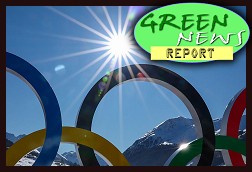 A failure in Diebold touch-screen voting systems in Butler County, OH resulted in votes not being included properly in Election Night results, even though the system had reported that all votes were uploaded and recorded correctly. Once the error was discovered, a subsequent upload of all of the county's 1599 touch-screen memory cards to the Diebold central election tabulator after the election, also resulted in the failure to record the results of one of the memory cards, despite the system having reported that all results were "uploaded properly."
A failure in Diebold touch-screen voting systems in Butler County, OH resulted in votes not being included properly in Election Night results, even though the system had reported that all votes were uploaded and recorded correctly. Once the error was discovered, a subsequent upload of all of the county's 1599 touch-screen memory cards to the Diebold central election tabulator after the election, also resulted in the failure to record the results of one of the memory cards, despite the system having reported that all results were "uploaded properly."
The failure of Diebold's widely-used AccuVote TSx machines during the state's March 4th primary election resulted in the initial loss of at least 150 votes, and has prompted a letter of concern to the company (posted in full at the end of this article) from Butler County's Election Director, Betty L. McGary and Deputy Director, Lynn Edward Kinkaid.
In the letter to David Byrd, President of Diebold's recently-renamed election division, "Premier Election Solutions," the officials point out that two different memory cards failed to upload vote tallies to the central tabulator.
"It may appear that every vote has been counted when cards indicate they are being properly uploaded, when in fact votes cast on a memory card(s) are not tabulated in the results," the officials wrote after having discovered the matter. "It is unimaginable how serious this situation could have been should the problem be undetected, or ignored," they concluded.
The letter also details yet another previously-unknown problem with Diebold's central tabulator --- one that could well-effect this November's general election --- as revealed to the officials by a company employee during the initial trouble-shooting of the problem.
Despite recent urgings from the Ohio Secretary of State, Diebold AccuVote TSx voting machines are still used as the primary voting system in 44 of Ohio's 88 counties, and are also widely in states across the rest of the country. The Cincinnati Enquirer reports that officials "don’t yet know whether the same glitch may have affected results from previous elections in Butler County or elsewhere." ...
"If we cannot produce accurate and reliable numbers, then it throws the entire process in question," McGary told the paper, which ads that it's "It’s unknown how widespread the problem could be."
A recount this afternoon, in a close race in the 53rd Ohio House district --- with just 54 votes separating the two candidates --- is said not to have been affected by the problems discovered so far.
Secretary of State Jennifer Brunner, who completed a massive study last year of Ohio's e-voting systems, finding numerous programming errors and "critical security concerns," has recommended that the state permanently ban the use of all touch-screen systems. Following the findings of her landmark EVEREST tests, last December she urged counties in the Buckeye State to move from touch-screen voting to paper-based systems. Almost all of the state's Election Directors have ignored her recommendations.
Diebold's voting systems have become legion for their persistent failures during elections, and the ease in which study after study across the country has found that they can be hacked in a moment's time by insiders who gain access to either a single voting machine or their central tabulation computer. Vote-flipping viruses can be added via their memory cards, the machines are all opened with a single matching key, and the database which stores vote totals on Microsoft Access easily corrupted to change vote totals without detection.
One other rather notable revelation is also made in the letter sent to Diebold/Premier by Butler's officials:
So with just a few months left before what is likely to be the largest election in the history of the United States, in addition to the possibility of memory card totals showing as having been uploaded --- when they haven't been --- we learn that there is also a size limit that could effect the proper tabulation of election results on Diebold's widely used GEMS central tabulator.
Not good.
The two-page letter from Butler County to Diebold/Premier, as originally posted as a two separate graphic files by the Middletown Journal has been retyped and posted below for easier reading...

April 4, 2008
Mr. Dave Byrd, President
Premier Election Solutions
3570 Forest Lake Drive
Uniontown, OH 44685
Dear Mr. Byrd,
We are writing this letter to you by direction of our Board with a copy to Jennifer Brunner, Ohio Secretary of State. The Butler County Board of Elections has discovered a serious problem in the GEMS program provided by Premier Elections Solutions.
On election night, March 4, 2008, during our Unofficial Run, all 1599 memory cards were uploaded properly in out TSX units and tabulated without incident into the GEMS server. We had received Premiers Product Advisory #PAN2008-003 of February 12, 2008, and were in full compliance with the recommended resolutions to the notice regarding GEMS Intermittently Terminating During Results Uploads. We used twenty Accu Vote-TSXs as recommended, and no more. All of the cards appeared to have uploaded properly, according to Keir Holeman of Premier Election Systems. Mr. Holeman was responsible for verifying the number of uploaded cards vs. the number downloaded and was physically present during the entire uploading procedure.
On Thursday, March 6, while collecting information for the Secretary of State regarding optical scan polling, it was discovered that Memory Card 8 from Lakota Freshman School, was not showing as uploaded, even though nothing seemed out of the ordinary on election night. We attributed the missing card to human error and made note to be certain to include that card in the Official Run. Mr. Holeman was immediately notified that a card was overlooked and it appeared that a card had not been uploaded on election night.
Our Official Run took place on April 1, 2008. Again, all 1599 memory cards were uploaded without incident and the number of uploads were verified by two members of our I.T. staff, as well as by Mr. Phil Schmidt from Premier. The data of Memory Card 8 from Lakota Freshman, previously missing from the Unofficial Run, was now in the report.
On the evening of April 2, 2008, we discovered the omission of Memory Card 6 when we printed a report to provide data for a certification document required by the Ohio Secretary of State document. Once in the database gathering information for the report, we noticed that the votes cast from Memory Card 6 of Adena Elementary were now missing.
The Board of Elections Systems Manager, Jason Bunch, notified Mr. Holeman of this discovery. Mr. Holeman speculated that the problem could stem from the size of a database being larger than 2 gigs. Mr. Holeman explained that the central count server used for scanning and uploading Absentee and Optical Scan Ballots was taking up too much space in the database and outlined a procedure for backing up, deleting and compressing data before continuing with the uploading of memory cards. He went on to say that Premier was aware of this problem and that they would be issuing a product advisory. To date, we have not received such notification. Mr. Bunch then reviewed the size of our database and found it to be an acceptable size (245mb), causing our office to question Mr. Holemans conclusion of too large of a database causing the problem.
Mr. Bunch and his colleague, Mary Kay Kowalski, our Database Manager, viewed the posting log of our database. Searching through the file, they located the entry for the missing card, and an error message was found that stated, a sharing violation has occurred. Simply stated, the card count on election night was 1599, but when the database was reopened, the count was 1598.
All of this information was shared with our Board yesterday during the Certification of Election Results Meeting. The Board reacted strongly to such distressing news, and requested that we write to you immediately demanding immediate attention to this issue. It is simply unacceptable for errors of this kind to be occurring. A situation of this nature could impact any election. It may appear that every vote has been counted when cards indicate they are being properly uploaded, when in fact votes cast on a memory card(s) are not tabulated in the results.
We wish to commend our excellent staff for detecting this problem and bringing it to the attention of us all. It is unimaginable how serious this situation could have been should the problem be undetected, or ignored. Please issue an immediate reply as to how Premier Election Solutions intends on remedying this situation.
Sincerely,
Betty L. McGary
Director
Lynn Edward Kinkaid
Deputy Director
Cc:
Honorable Jennifer Brunner, Secretary of State
Chairmen and Members, Butler County Board of Elections


 Court Blocks Hegseth Censure of Sen. Mark Kelly
Court Blocks Hegseth Censure of Sen. Mark Kelly Harpy Tantrums, Legal Losses, Election Fails, Retreating ICE and Other Hopeful Signs: 'BradCast' 2/12/26
Harpy Tantrums, Legal Losses, Election Fails, Retreating ICE and Other Hopeful Signs: 'BradCast' 2/12/26 'Green News Report' 2/12/26
'Green News Report' 2/12/26
 'Let Kids with Asthma Suffer': Trump to Reverse EPA's Landmark 'Endangerment Finding': 'BradCast' 2/11/26
'Let Kids with Asthma Suffer': Trump to Reverse EPA's Landmark 'Endangerment Finding': 'BradCast' 2/11/26 Trump's Presidency Now About Little More Than Racism, Corruption, Culture War Nonsense: 'BradCast' 2/10/26
Trump's Presidency Now About Little More Than Racism, Corruption, Culture War Nonsense: 'BradCast' 2/10/26 'Green News Report' 2/10/26
'Green News Report' 2/10/26 About Trump's FBI Raid of the Fulton County, GA Elections Warehouse: 'BradCast' 2/9/26
About Trump's FBI Raid of the Fulton County, GA Elections Warehouse: 'BradCast' 2/9/26 Sunday 'Dead in Darkness' Toons
Sunday 'Dead in Darkness' Toons 'New START' Treaty Allowed to End Amid New World Disorder: 'BradCast' 2/5/26
'New START' Treaty Allowed to End Amid New World Disorder: 'BradCast' 2/5/26 'Green News Report' 2/5/26
'Green News Report' 2/5/26 Trump Turns 'War on Terror' Tools Against Domestic Political Foes: 'BradCast' 2/4/26
Trump Turns 'War on Terror' Tools Against Domestic Political Foes: 'BradCast' 2/4/26 Losing Legally and Politically, Trump Threatens to 'Nationalize' Elections: 'BradCast' 2/3/26
Losing Legally and Politically, Trump Threatens to 'Nationalize' Elections: 'BradCast' 2/3/26 'Green News Report' 2/3/26
'Green News Report' 2/3/26 Bad and Good Bunnies, and an Electoral Shock in Deep 'Red' TX: 'BradCast' 2/2/26
Bad and Good Bunnies, and an Electoral Shock in Deep 'Red' TX: 'BradCast' 2/2/26 Sunday 'Mirror, Mirror' Toons
Sunday 'Mirror, Mirror' Toons 'Green News Report' 1/29/26
'Green News Report' 1/29/26 It's About Elections and the Windmills of His Mind: 'BradCast' 1/29/26
It's About Elections and the Windmills of His Mind: 'BradCast' 1/29/26 Govt Shutdown Over ICE Funding Near Certain This Weekend: 'BradCast' 1/28/26
Govt Shutdown Over ICE Funding Near Certain This Weekend: 'BradCast' 1/28/26 Trump Blinks, Bovino Out, MN Op Falters, Persists as Midterms Loom: 'BradCast' 1/27
Trump Blinks, Bovino Out, MN Op Falters, Persists as Midterms Loom: 'BradCast' 1/27  The ICE Murder of ICU Nurse Alex Pretti and the Heroes of Mpls: 'BradCast' 1/26/26
The ICE Murder of ICU Nurse Alex Pretti and the Heroes of Mpls: 'BradCast' 1/26/26  The BRAD BLOG: 22 Years and Still Counting
The BRAD BLOG: 22 Years and Still Counting Mr. Smith Testifies (Publicly) in Washington: 'BradCast' 1/22/26
Mr. Smith Testifies (Publicly) in Washington: 'BradCast' 1/22/26 World Turning Against Self-Destructing U.S. Under Trump: 'BradCast' 1/21/26
World Turning Against Self-Destructing U.S. Under Trump: 'BradCast' 1/21/26 Trump Waste, Fraud, Abuse on Voting, at DOJ, by DOGE: 'BradCast' 1/20/26
Trump Waste, Fraud, Abuse on Voting, at DOJ, by DOGE: 'BradCast' 1/20/26
 VA GOP VOTER REG FRAUDSTER OFF HOOK
VA GOP VOTER REG FRAUDSTER OFF HOOK Criminal GOP Voter Registration Fraud Probe Expanding in VA
Criminal GOP Voter Registration Fraud Probe Expanding in VA DOJ PROBE SOUGHT AFTER VA ARREST
DOJ PROBE SOUGHT AFTER VA ARREST Arrest in VA: GOP Voter Reg Scandal Widens
Arrest in VA: GOP Voter Reg Scandal Widens ALL TOGETHER: ROVE, SPROUL, KOCHS, RNC
ALL TOGETHER: ROVE, SPROUL, KOCHS, RNC LATimes: RNC's 'Fired' Sproul Working for Repubs in 'as Many as 30 States'
LATimes: RNC's 'Fired' Sproul Working for Repubs in 'as Many as 30 States' 'Fired' Sproul Group 'Cloned', Still Working for Republicans in At Least 10 States
'Fired' Sproul Group 'Cloned', Still Working for Republicans in At Least 10 States FINALLY: FOX ON GOP REG FRAUD SCANDAL
FINALLY: FOX ON GOP REG FRAUD SCANDAL COLORADO FOLLOWS FLORIDA WITH GOP CRIMINAL INVESTIGATION
COLORADO FOLLOWS FLORIDA WITH GOP CRIMINAL INVESTIGATION CRIMINAL PROBE LAUNCHED INTO GOP VOTER REGISTRATION FRAUD SCANDAL IN FL
CRIMINAL PROBE LAUNCHED INTO GOP VOTER REGISTRATION FRAUD SCANDAL IN FL Brad Breaks PA Photo ID & GOP Registration Fraud Scandal News on Hartmann TV
Brad Breaks PA Photo ID & GOP Registration Fraud Scandal News on Hartmann TV  CAUGHT ON TAPE: COORDINATED NATIONWIDE GOP VOTER REG SCAM
CAUGHT ON TAPE: COORDINATED NATIONWIDE GOP VOTER REG SCAM CRIMINAL ELECTION FRAUD COMPLAINT FILED AGAINST GOP 'FRAUD' FIRM
CRIMINAL ELECTION FRAUD COMPLAINT FILED AGAINST GOP 'FRAUD' FIRM RICK SCOTT GETS ROLLED IN GOP REGISTRATION FRAUD SCANDAL
RICK SCOTT GETS ROLLED IN GOP REGISTRATION FRAUD SCANDAL VIDEO: Brad Breaks GOP Reg Fraud Scandal on Hartmann TV
VIDEO: Brad Breaks GOP Reg Fraud Scandal on Hartmann TV RNC FIRES NATIONAL VOTER REGISTRATION FIRM FOR FRAUD
RNC FIRES NATIONAL VOTER REGISTRATION FIRM FOR FRAUD EXCLUSIVE: Intvw w/ FL Official Who First Discovered GOP Reg Fraud
EXCLUSIVE: Intvw w/ FL Official Who First Discovered GOP Reg Fraud GOP REGISTRATION FRAUD FOUND IN FL
GOP REGISTRATION FRAUD FOUND IN FL

































